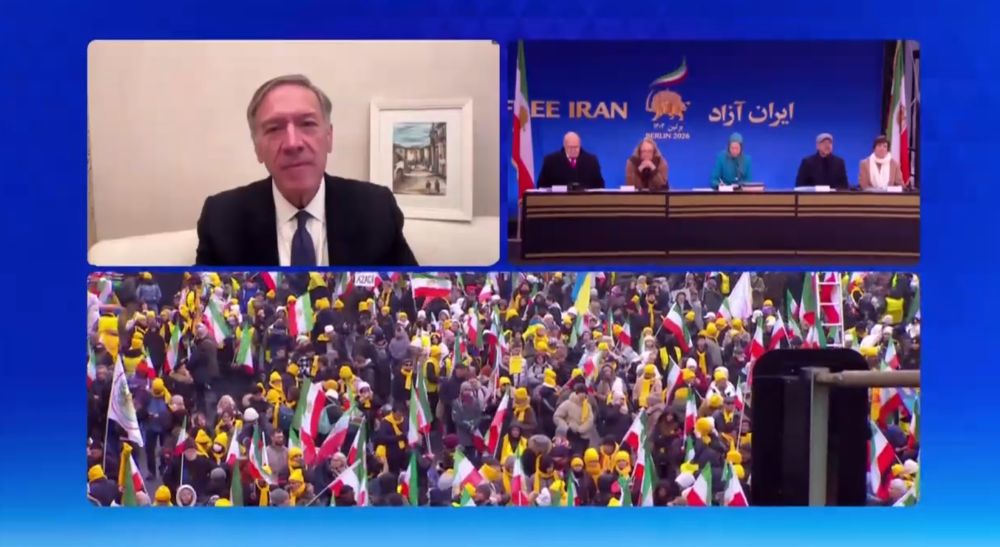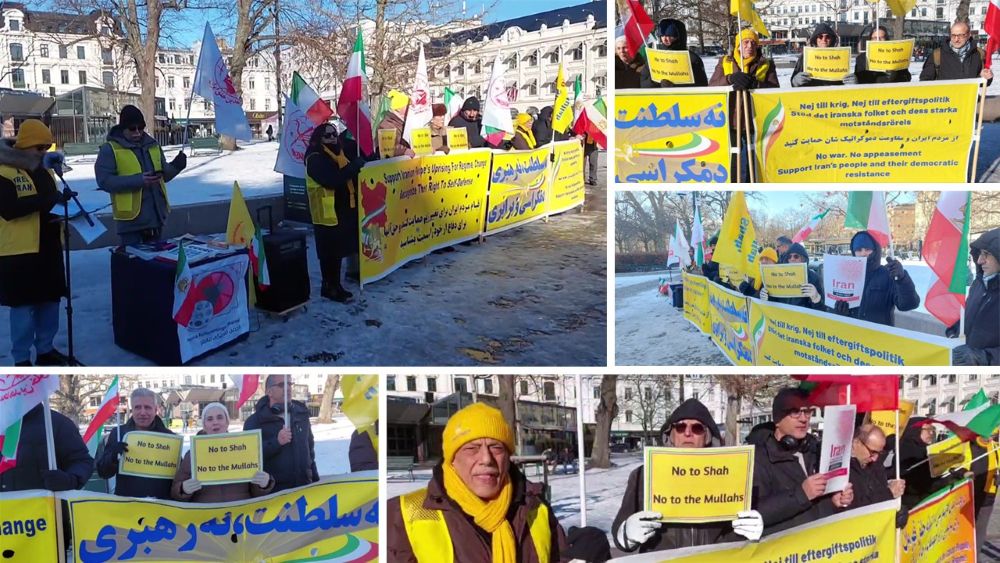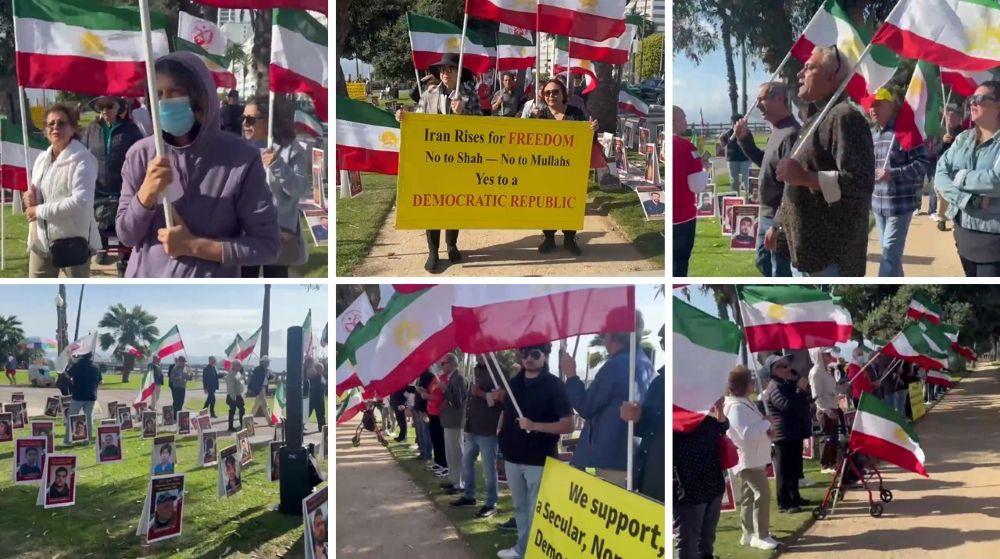On the brink of the annual session of the United Nations General Assembly, an online international summit, entitled “Trans-Atlantic Summit on Iran Policy, Time to Hold the Iranian Regime Accountable,” brought together Iranians in various countries around the world from 10,000 locations.
Among the personalities who addressed the summit were 30 bipartisan U.S. lawmakers from the House and the Senate, including Senator Ted Cruz, Senator Roy Blunt, Senator Marco Rubio, Senator Bob Menendez, and dignitaries like Rudy Giuliani, former New York City mayor, General James Jones, National Security Advisor to President Obama (2009-2010), Newt Gingrich, 50th Speaker of the United States House of Representatives, Joseph Lieberman, former U.S. Senator, as well as a delegation of U.K. lawmakers, and Amb. Giulio Terzi, former Foreign Minister of Italy.
Mrs. Maryam Rajavi, the President-elect of the National Council of Resistance of Iran (NCRI) and the keynote speaker of the summit, paid tribute to Navid Afkari, a rebellious national hero recently executed by the regime and said: “Faced with executions and massacres, the people of Iran urge the United Nations, and the U.N. Security Council, in particular, to restore snapback sanctions stipulated in the six U.N. resolutions against the clerical regime in Iran. Otherwise, Khamenei will continue to ravage the nation as his regime’s survival depends on murder and suppression. If Khamenei were to stop executions, he would lose control of the situation, and uprisings simmering in the depths of Iranian society would erupt and overthrow the mullahs’ religious fascism.”
Speakers in the summit demanded justice for over 30,000 MEK and other activists, political prisoners massacred in 1988. They urged an end to the policy of appeasement and demanded those who ordered and carried out this great crime, who currently occupy high positions in the regime, to be brought to justice.
David Jones, British MP joined the summit. In his remarks, Mr. Jones said, “We have now seen three years of repeated anti-regime protests in Iran, ongoing worker strikes across the country, rejecting the ruling theocracy and demanding genuine democracy and change in that country. We’ve seen the regime responding, and they continue to respond by stepping up domestic repression, mass arrests, executions, torture, and the killing of 1,500 protestors.”
David Jones, British MP
Madame Rajavi, ladies and gentlemen, it’s a great pleasure to join you from London at this important conference. And it’s a particular privilege to speak immediately after Mayor Giuliani. And I’m also pleased to see Senator Joe Lieberman there, who I met some years ago in New York City. He probably doesn’t remember me. But this is certainly a timely event because as we know, the annual general debate of the UN General Assembly opened three days ago. And I believe this year’s gathering of world leaders in New York City is even more significant than usual because Iran is at a pivotal moment in its history.
We have now seen three years of repeated anti-regime protests in Iran, ongoing worker strikes across the country, rejecting the ruling theocracy and demanding genuine democracy and change in that country. We’ve seen the regime responding, and they continue to respond by stepping up domestic repression, mass arrests, executions, torture, and the killing of 1,500 protestors. The regime has resorted to terrorist attacks against members of the organized Iranian opposition, the MEK in Albania. And as we’ve just heard from Mayor Giuliani, an Iranian diplomat is currently awaiting trial in Belgium for allegedly masterminding a bomb plot against the NCRI, targeting its president, you, Madame Rajavi, and thousands of others, including members of my own staff, from many other nations across the world gathering in Paris. There’s no doubt that the mullahs are now clearly fearful of the imminent explosion of the society in Iran, and yet they continue to defy international opinion. A case in point recently was their refusal to intervene to stop the callous execution of the Iranian champion wrestler and political prisoner, Navid Afkari, despite a global outcry.
I repeat, ladies and gentlemen, that Iran is now at a pivotal moment. And I therefore believe that my country, the United Kingdom, is mistaken, along with the two European powers, France and Germany, in its adherence to the flawed nuclear deal, which doesn’t hold the regime to account and does nothing to counter its unacceptable behavior at home, throughout the region, and indeed across the world. In fact, I think it arguably has the opposite consequences to its intended effect. It emboldens the regime to continue its domestic crackdown on popular protestors and exports terrorism to the wider region. Now that’s why I argued in an article I wrote for the Daily Telegraph earlier this week that the United Kingdom should instead side with its staunch ally the United States, not the European Union which we’ve just left, in taking a tougher stance on Iran’s totalitarian regime. I stress that the UK should support the reimposition of UN sanctions to maintain pressure on the regime and to assume leadership of an international inquiry into the 1998 massacre of 30,000 political prisoners in Iran. And I’m glad to say that 215 politicians from 24 countries across Europe have also called for the reimposition of sanctions.
Now, the coming debate in the UN General Assembly offers an opportunity for the UK and the US to press for the continuation of those sanctions, encouraging other nations to follow the principled approach based on a hardheaded response to the reality of the situation in Iran and not to follow appeasement, by adopting a firm resolve to hold the regime’s leaders to account at an international level for past crimes against humanity and current the people of Iran, and the pro-democracy movement that’s led by Madame Rajavi, supporting a viable Iranian-made solution to the current regime in Tehran.
This week, we celebrated Battle of Britain day, which marked the victory of the United Kingdom over Hitler. When we as a country stood alone for democracy against the most appalling fascist dictatorship. During World War II, under the leadership of Winston Churchill, the United Kingdom supported resistance movements throughout Europe against the Nazi regime. And in succeeding decades, the United Kingdom and the United States supported popular movements in East Europe during the Cold War. We did all this together because of our shared conviction and the United Kingdom as countries as devoted to the cause of freedom should stand with the Iranian people and the NCRI in their struggle to establish a free, democratic, and secular republic in Iran. Thank you very much.



